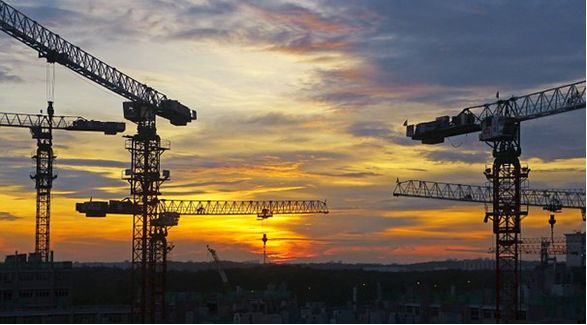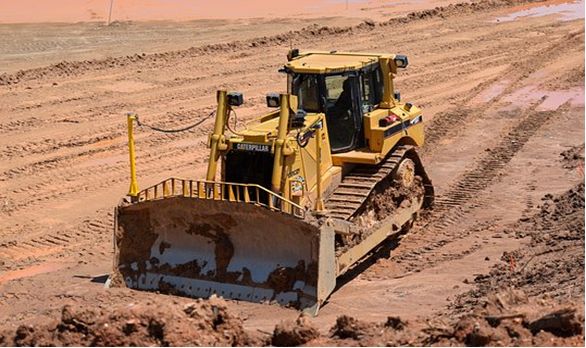Do you have a new construction project in the pipeline? Has your former equipment supplier proven to be unreliable?

Construction equipment is an integral part of an on-site job. This means that most construction crews will already own forklifts, overhead cranes, rollers and what-not.
But the current construction trends show that this tradition has become outdated. In this day and age, builders prefer to hire equipment instead of lugging the heavy machinery around from one project to another.
This strategy has proven to be beneficial for many builders. That’s because it allows them to access the latest machinery in economical prices.
The best part is that they don’t have to worry about storage or maintenance when they’re off the job. So you kind of get the best of both worlds by contacting with equipment hire companies.
There is one teensy weensy catch though. Like all great enterprises, this one opens up the possibility of getting ripped off by the suppliers. They can prove to be stubborn, have outlandish demands or provide faulty equipment for your project.
That’s why your best bet is to collaborate with names that you can trust.
More importantly, you must take precautionary measures before you employ a piece of metal on your construction team. That is because sometimes the flaw is in your plan. You might not understand the technicalities of the purchase. Or you may have forgotten a crucial detail in your order.
As the saying goes, ‘the devil is in the details’. So you need to pay close attention to each and every little fact about the transaction. In order to help you out, we have composed a helpful checklist that covers all the necessary factors you should be weighing in before you rent equipment.

Let’s look at all variables you should keep in mind before you contact a supplier:
- The Finances: Is the Hire Equipment Worth the Price?
One of the major reasons why you are out here renting construction equipment instead of buying one is because of the cost constraints.
It is safe to assume that hiring equipment shaves off the burden of getting a government licensee, insurance fees, and other liable fees. So it is natural to assume that your rentals won’t charge as much.
Nonetheless, there are other things that you must consider like the varying fees of each of your machinery. A forklift hire will not cost as much as a roller hire. You might also be able to avail some off-season packages if your project is beginning at an unusual time.
Apart from this, you must factor in the:
Cost of transport: It takes lots of fuel and a certain amount of manpower to take the equipment to and fro from the rental company. Even if the rental companies offer delivery services you can bet that they come with a price tag.
Cost of fuel: One-third of your cost will probably go in the fuel required to operate the machines.
Maintenance: Who pays the maintenance bills? This should be made clear before you sign off the rental papers. You don’t want to get into something you weren’t prepared for because of miscommunication.
Our advice for you is to create a clear-cut budget plan and consider all options before you approach a supplier.
- The Time: How Long Is Your Project?
Renting in general means that you are borrowing the equipment from someone else for a small price. That is why time and dates are always a deciding variable in the hiring process. Not only does it have influence the rental prices. But it also changes the need for each project.
In most cases, you have decided to rent specialized machinery because it is a one-time job. You might need the equipment for a few days during the project. So renting is a much more feasible option than buying a brand new product. But renting comes with a deadline and construction sites usually have a slippery sense of time.
This is why we suggest that you consider the:
Shifting Schedules: Try to align your operation schedules according to the renting plan. You don’t want workers to still idle as they wait for equipment to be delivered.
Unpredictable Weather: Ensure that your transaction is flexible enough to accommodate rough weather. You never know when rainy storms will impede your construction plans. So you don’t want to return the equipment when the project is still unfinished.
Bickering Builders: Set a tight schedule for your team. You must know who is assigned a particular task and which team is operating on the hired equipment. This prevents your crew from turning into loggerheads as they fight over whose turn it is to use the forklift.
Basically, you don’t want to pay for construction equipment that is barely used during the project. Neither would you like paying hefty fines when you fail to return the hired equipment due to an unforeseen setback.
- The Equipment: What Should You Hire?
Hiring equipment doesn’t mean making do with second best machinery. You have every right to demand high-quality and well-functioning equipment when you rent them.
Here are a handful of things you need to survey when you rent something:
- Is it the latest model?
- Is it functioning properly? Does it have any issues?
- Can you take it for a test drive?
- Will it withstand the pressure of your job?
- When was the last maintenance check?
In short, you should select a piece that suits your needs.
- The Storage Space: Where Will You Keep the Equipment?
While the equipment is in your hands you bear the responsibility to take care of it. They must be kept in clean, dry places and get proper coverage. Or else you will be paying an extra fee for the damage you or the crew has done.
Plus, you should also keep a close eye on inventory. Thefts on construction sites are quite the norm so having a tight hold on the team can save you from a whole lot of trouble.
Therefore, make sure that your storage space is:
- Big enough for all the rental equipment
- In secured quarters that can be locked and monitored
- Dry, clean and covered
- Protected from water and wind damage
The Bottom Line
In the end, make sure that the equipment you get is worth the price you’re paying. You are using this option for feasibility and convenience. So if things aren’t working out then you’re better off with purchasing your own equipment.
Looking for some construction equipment? Stop browsing the market and head over to General Hire. We can help you get in touch with dependable suppliers working in your area. Whether you need a forklift, pallet or donga for hire, we promise to never leave you hanging in case.
Thanks for reading this article. You can subscribe for regular update about technology news and tips via RSS Feed.